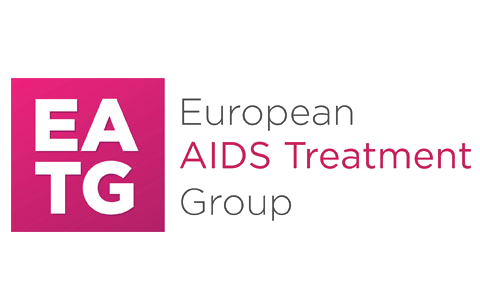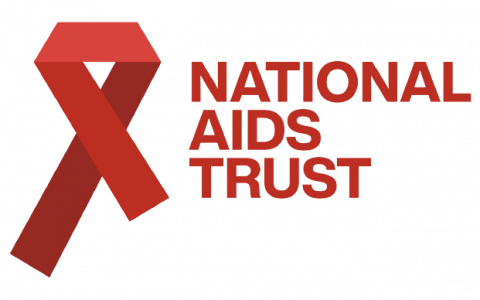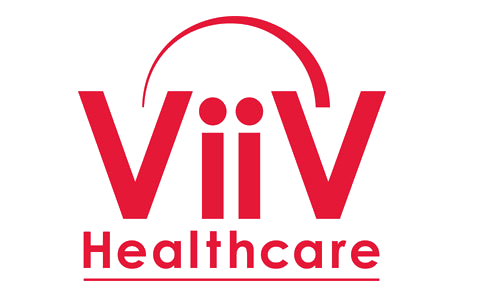Case Study
UK – Recommendations for Good Practices: BHIVA – New person-centred standards of care for people living with HIV

Good-quality care should focus on the person and not only their illness. These new Standards aim to ensure that care for people living with HIV is ‘person-centred’ by looking at Stigma (equitable and non-discriminatory care), Self-management and peer support, Participation of people living with HIV in their care, and Well-being. Person-centred care means that services consciously adopt the perspectives of individuals, families and communities to respond to their needs and preferences in humane and holistic ways; the person is a participant, not just a beneficiary of the health system. By doing so, person-centred care becomes paramount to ensuring care that is relevant, appropriate and accessible for people living with HIV.
-
ContextSince the identification of HIV in 1983, there has been enormous progress in HIV treatment and care, with substantial improvements in both clinical outcomes and the lives of people living with HIV. Treatment outcomes for people living with HIV in the UK are among the best in the world and those who are diagnosed and treated promptly now have a similar life expectancy to the general population. At the same time, the increasing comorbidities of an ageing HIV population bring other challenges to the provision of excellent care. Recognition of the impact of effective virological suppression on transmission, alongside the emergence of other effective prevention interventions (e.g. pre-exposure prophylaxis [PrEP]) has resulted in improvements in sexual health and well-being as well as decreased transmission. The combination of the changing needs of patients and the current financial pressures makes it very important that the care provided is both evidence based and value for money.
-
Introduction
In 2007, the British HIV Association (BHIVA) developed the first set of Standards for the clinical care of adults living with HIV, in collaboration with other stakeholders. The Standards are designed to provide a reference point against which to benchmark the quality of HIV care in the context of the changing needs of patients and the current financial pressures. They provide information to support top quality care and inform commissioning decisions to meet the growing need for a more efficient and cost-effective services.
As the past decade has seen significant changes in the field of HIV, updated versions of the Standards have been published in 2013 and 2018. In the last edition, BHIVA introduced a new Standard section covering person-centred care. These new Standards are evidence based and cover the range of care needed from testing and diagnosis to the end of life, taking a holistic view of an integrated approach embracing overall health and well-being, as well as clinical care. -
AimsGood-quality care should focus on the person and not only their illness. These new Standards aim to ensure that care for people living with HIV is ‘person-centred’ by looking at Stigma (equitable and non-discriminatory care), Self-management and peer support, Participation of people living with HIV in their care, and Well-being. Person-centred care means that services consciously adopt the perspectives of individuals, families and communities to respond to their needs and preferences in humane and holistic ways; the person is a participant, not just a beneficiary of the health system. By doing so, person-centred care becomes paramount to ensuring care that is relevant, appropriate and accessible for people living with HIV.
-
Method
1. HIV-related stigma and discrimination are widely reported in healthcare settings and are a leading contributor to poor health outcomes for people living with HIV. To address its impact and ensure the provision of high-quality ‘person-centred’ HIV care:
- Staff across all health and social care services should receive basic information and training on blood-borne viruses (BBV) and access to resources on treating people living with HIV, including trans people and people who use drugs.
- Staff across all healthcare services should be provided with training on how to identify the impact and effects of stigma, including what it is, how it is manifested, the consequences on mental well-being and behaviour, as well as how issues can be addressed practically.
- Staff involved in HIV testing, diagnosis and treatment should have access to training and information that explicitly addresses the stigma and prejudice faced by people in key populations, in particular on the specific needs of trans people and people who use drugs, designed to challenge preconceptions and stigma still experienced by members of these groups.
- Healthcare services should ensure that staff members are aware of the confidential nature of people’s medical records, including their HIV status.
- People living with HIV should be made aware of how they can raise concerns if they are unhappy with their care or have experienced stigma and should be supported in doing so. They should be reassured this will not affect access to or the standard of their care.
2. Self-management refers to people living with HIV developing an understanding of how their condition affects their lives and learning to cope with the multi-faceted challenges HIV presents. Peer support is a relationship in which participants see each other as equal partners and where the focus is on mutual learning and growth. To unlock the benefits of self-management and peer support to guarantee high-quality ‘person-centred’ care:
- People living with HIV should have equitable access to services that promote self- management of HIV including provision of support and information about HIV, treatment, healthy living with HIV, diet and lifestyle, and optimisation; of general health including rehabilitation services; on maximisation of entitlement to health services and suppor; to enable people to optimise their entitlement and access to financial and housing support, and to optimise their ability to maintain/gain/regain employment
- HIV services should maximise the use of peer support as set out in the National Standards for Peer Support in HIV (www.hivpeersupport.com).
3. Active participation in care of people living with HIV leads to long-term, chronic condition self-management thanks to trust, transparency and good communication. To allow people living with HIV to make decisions about their individual treatment and facilitate their involvement in planning services:
- Services should place the patient at the centre of decision-making and ensure that assessment and delivery of care addresses both clinical and patient-reported outcomes and priorities.
- Services should ensure that decisions made together by people living with HIV and practitioners follow national guidance and professional standards for shared decision-making in all aspects of care.
- Services should ensure that people living with HIV have access to written information about investigations, ART and other aspects of their HIV treatment and care, or are able to provide the equivalent orally if this is preferred or necessary.
- Developing capability for shared decision-making should be encouraged and facilitated in clinicians, people living with HIV and the community sector, in particular for those whose background circumstances may compromise their full participation in evaluating options for treatment and care.
- To ensure that services are fit for purpose and responsive to users’ needs, opportunities (formal and informal) should be available for people living with HIV, individually or through the community sector, to be involved in service design, planning, delivery and review.
- People living with HIV should expect to be able to provide feedback, ranging from comment on individual consultations to involvement in service commissioning,
as well as the chance to give named and anonymous input into service design, delivery and performance review at local, regional and national level. - Information related to consultations about service planning and delivery should be published in appropriate physical (e.g. public notice boards) and virtual (e.g. service provider’s web site) locations.
4. Well-being in the context of the Standards considers the broader quality of life issues for people living with HIV beyond treatment of the virus and beyond physical health and increased longevity. To improve and maintain well-being for people living with HIV, which leads to individual benefits, greater happiness, social participation, self-worth, etc., person-centred HIV care services should ensure that:
- Issues of well-being continue to be incorporated into clinical and care practices in transparent ways
- A person-centred approach is taken in providing care to ensure that well-being for each person is holistic and meaningful
- Well-being is a consideration when developing, delivering and assessing services and policies in health and social care for people living with HIV
- Pressure on the cost and time available to provide clinical services does not result in the erosion of well-being initiatives or considerations
- Best practice service provision that incorporates concerns of individual and community well-being should be broadly communicated
-
Results
1. To measure results related to HIV-related Stigma and discrimination: - Proportion of providers with documented evidence of a patient experience survey in past 3 years to assess satisfaction with care across medical departments and monitor experience of stigma.
- Proportion of providers compliant with local organisational requirements for equality and diversity training.
2. To measure results related to Self-management and Peer support:
- Proportion of people reporting they feel supported to manage HIV (target: 90%).
- Proportion of services that provide, or have an agreed care pathway to, peer- support and self-management services (target: 95%).
- Proportion of services with agreed care pathways that include peer-support options (in-house and/or external agencies).
3. To measure results related to Active participation:
- Proportion of people who report being satisfied with decisions about their care (target: 80%).
- Proportion of people with documented evidence that they have either received written information about their ART, including details for each drug prescribed, or have been given equivalent oral information if they prefer this option (target: 90% of total people on treatment).
- Proportion of people who confirm they have been involved in making decisions about their care (target: 90%).
4. To measure results related to Well-being:
- Documented evidence of a local guideline for assessment for and access to support around accessing benefits and financial hardship.
- Proportion of people in whom patient-reported outcome measure (PROM) is used to identify symptoms, concerns, priorities and outcomes of care (target: 90% of those with capacity to participate) (BHIVA PROMs in development at time of publication).
- Documented evidence of the use of patient-reported experience measure (PREM) to assess patient experience in past 3 years (target: 95% of services) (BHIVA PREMs in development at time of publication).
-
Recommendations
- All people living with HIV should be provided with equitable and non-discriminatory care across all healthcare settings including those outside sexual health and reproductive services.
- In keeping with the management of other long-term health conditions, people living with HIV should be enabled to optimise self-management and access peer-support opportunities to promote their physical and mental health, and overall well-being.
- People living with HIV should be actively involved in decisions about their own health and social care. People who use HIV clinical and support services should be actively involved in the design, planning, delivery and review of these services. Ensuring active engagement in decision-making may require support and resources for both people living with HIV and service providers.
- Service providers should be able to demonstrate their commitment to participation through identification of strategies, pathways and resources for both individual engagement in decision-making and community engagement in service provision.
- Well-being is specifically that aspect of health that is concerned with the psychological, social and physical resources an individual can draw on to meet their life challenges and to increase their happiness and quality of life. People living with HIV should receive care that takes account of and enhances their well-being beyond their physical health and life expectancy.







